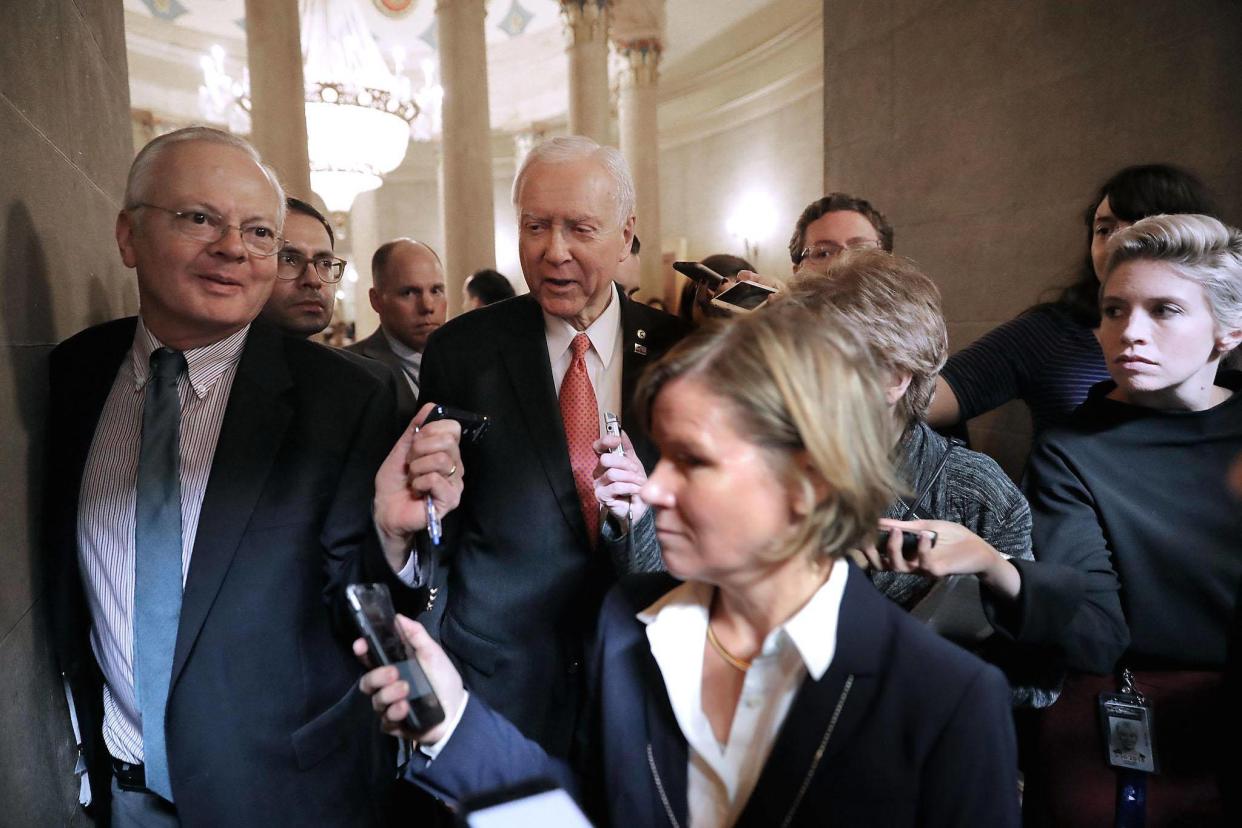Republicans to delay corporate tax cut to 2019 despite Trump demanding they immediately lower it

Defying the orders of Donald Trump, Senate Republicans are expected to propose delaying the implementation of a lower corporate tax rate until 2019 as the party rushes to pass a sweeping tax rewrite by the end of the year.
The proposal is likely to anger the President, who has insisted that Congress immediately reduce the rate to 20 per cent from 35 per cent to spur the economy.
Lowering the corporate rate is a centrepiece of the Republicans’ plan to cut taxes – an effort that is anticipated to get more complicated once the Senate reveals legislation said to greatly diverge from the House’s measure.
House Republicans are advancing a bill that would lower the corporate tax rate in 2018. However, they are also having trouble dealing with the total cost of their bill, which has surpassed the $1.5 trillion price tag they were permitted to have under budget rules.
Since Republicans are using a legislative process known as reconciliation – meaning they can push a bill through Congress without any support from Democrats – they must keep the cost of the bill to $1.5 trillion over 10 years.
Party members in both the House and Senate are desperate to find ways to fund their bills so as not to increase the deficit by more than this amount. This is why the Senate’s version is expected to delay the corporate tax cut and entirely eliminate the state and local tax deduction – moves that would help Republicans raise a lot of money. The House’s version, meanwhile, only limits the deduction.
Critics of the effort for a tax rewrite say the overhaul will significantly benefit the wealthiest Americans while only providing modest gains for some middle-class families, which Republicans have said the legislation will help the most.
The party could face significant consequences in the House if members gets rid of the state and local tax deduction, which aides constituents in high-tax states, particularly those that live in suburban areas, according to Senate Minority Leader Chuck Schumer.
While speaking on the Senate floor, Mr Schumer warned House Republicans representing suburban districts that the tax bill could be their “political doom”.
“This should be a three-alarm fire for every House Republican in California, New York, New Jersey, Virginia, Washington, Illinois, Colorado. ... You'll pay a price. House Republicans should kill the bill now if they want to have any hope of stopping the full repeal of state and local deduction,” Mr Schumer said.
Republicans in the Senate would likely not pay the same political price since the high-tax states primarily have Democratic senators.
The House is expected to vote on its tax measure next week. If the Senate manages to pass its own bill, it is likely that the two chambers of Congress will go to conference to merge the two pieces of legislation.
Mr Schumer argued that the Senate version is likely to prevail in this setting.
“Voting to repeal the state and local deduction ... would be political suicide, all to bow down to special wealthy interests, special big interests of large corporations,” Mr Schumer said.

